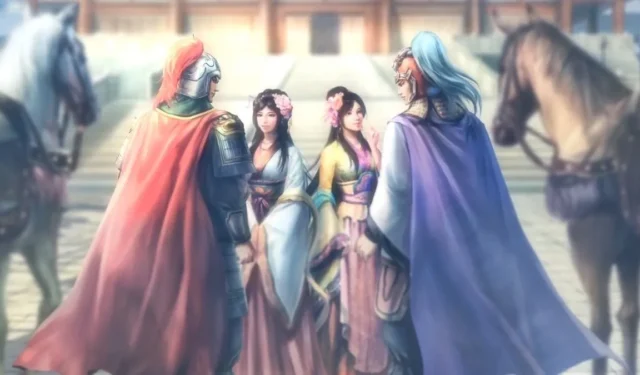
My engagement with Koei Tecmo’s games situated in China’s Three Kingdoms era spans many years. In addition to the popular Dynasty Warriors franchise, I’ve developed a special appreciation for the Romance of the Three Kingdoms series, especially its strategy games infused with role-playing aspects. Therefore, the announcement of Romance of the Three Kingdoms 8 Remake thrilled me, and I was eager to discover how this new iteration would play out. While it successfully revives a beloved classic with contemporary enhancements, shortcomings in its localization detract from the overall experience.
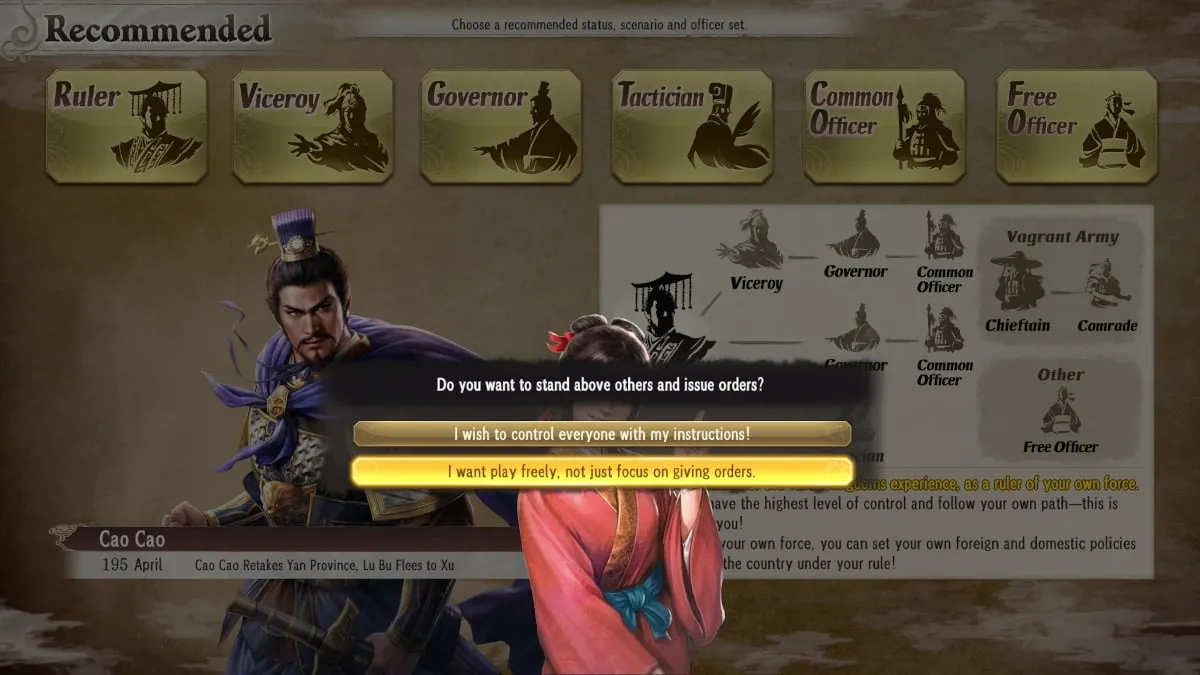
Typically, the Romance of the Three Kingdoms game series centers around regional leaders competing for the unification of China, managing cities and recruiting notable officers. Among the main entries, Romance of the Three Kingdoms 8 is unique, sharing this feature with only three others—7, 10, and 13—as of 2024—allowing players to assume the roles of subordinate and independent officers. While the seventh installment, released in 2000, was a pioneer with its character perspectives, it lacked depth. The significant relationship mechanics, such as forming sworn brotherhoods and marriages, were introduced later in the 2001 release of 8 and the 2002 Power-Up Kit. Given that 8 serves as a direct advancement of 7, it makes sense that Koei Tecmo chose this title as the foundation for the remake.
I played the PC version, which is not merely the primary platform for this title but also includes exclusive features absent from console editions. Unlike the PlayStation and Switch versions, which segregate language options by WeUs, the PC version allows users to easily switch between English, Japanese, Chinese, and Korean at startup. Additionally, the PC edition comes with a special program that permits players to upload custom character portraits into the game.
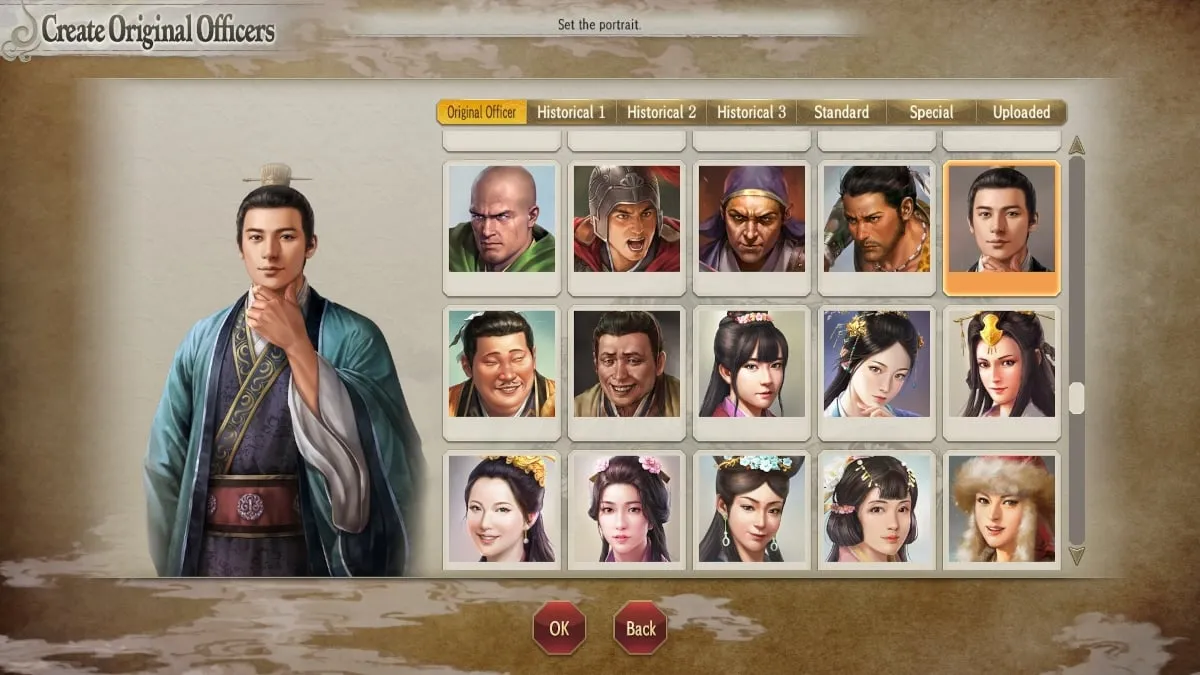
The ability to upload personalized portraits greatly enriches the experience of crafting original officers. Players can freely set the starting attributes and capabilities of their characters. Moreover, options to define familial ties and compatibility with existing characters add an intriguing layer. A surprising feature is that if players do not provide a biography for the newly created officers, the game will fill this in automatically based on the inputted stats.
After selecting your protagonist and the starting locale, you’re ready to dive into the game. However, it’s crucial to note that the original Romance of the Three Kingdoms 8 allowed gameplay from multiple character perspectives, including rival factions. The remake eliminates this possibility, restricting players to view the narrative through a single character’s lens.
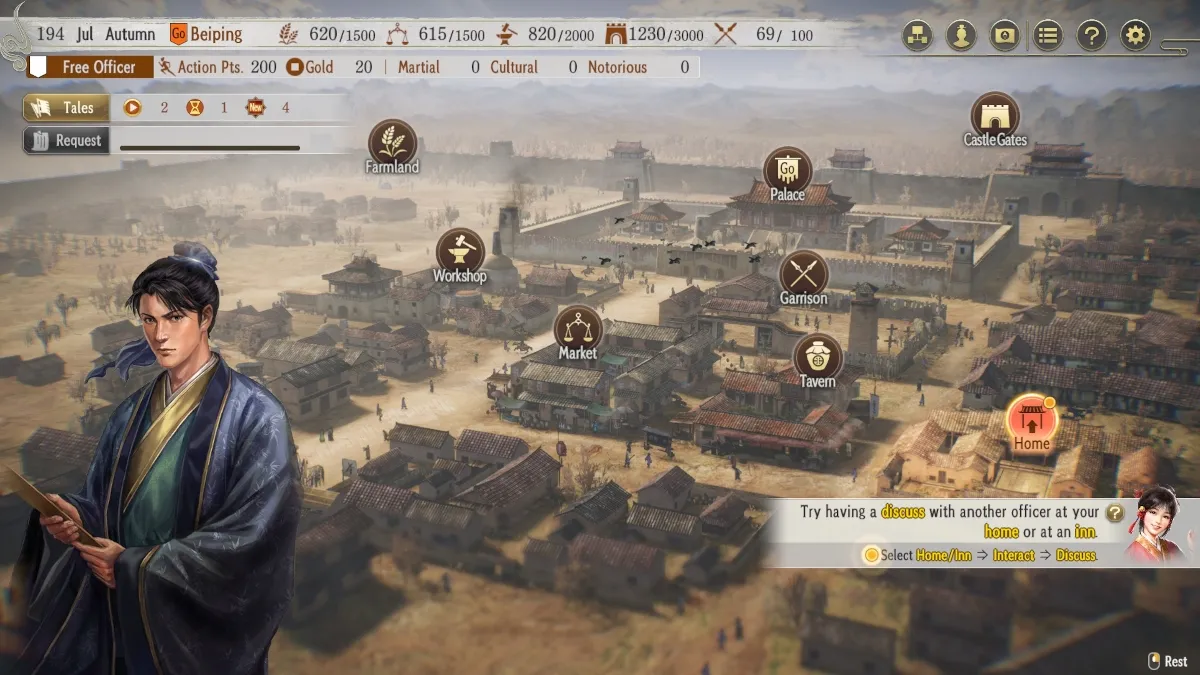
Koei Tecmo has preserved many of the gameplay mechanics from the original Romance of the Three Kingdoms 8 in this remake. While entries 10 and 13 progress in real-time daily, 8 operates on a monthly turn system, providing players with a certain number of action points each month to engage in city development or interact with other officers, which refreshes with the arrival of a new month.
Although my favorite starting position has traditionally been Free Officer, its capabilities are unfortunately quite restricted in this iteration. Unlike the mechanics found in Romance of the Three Kingdoms 10 or 13, I could not even muster militia troops when entirely solo. The available requests were excessively costly, with minimal rewards, compelling me to interact with townsfolk or other characters to advance.
Once you align yourself with a faction, you gain the opportunity to participate in Parliamentary sessions at the start of each season. This creates a space for gathering intel on regions or attempting subterfuge; however, these sessions also become the exclusive moments to initiate invasions against opponent cities.
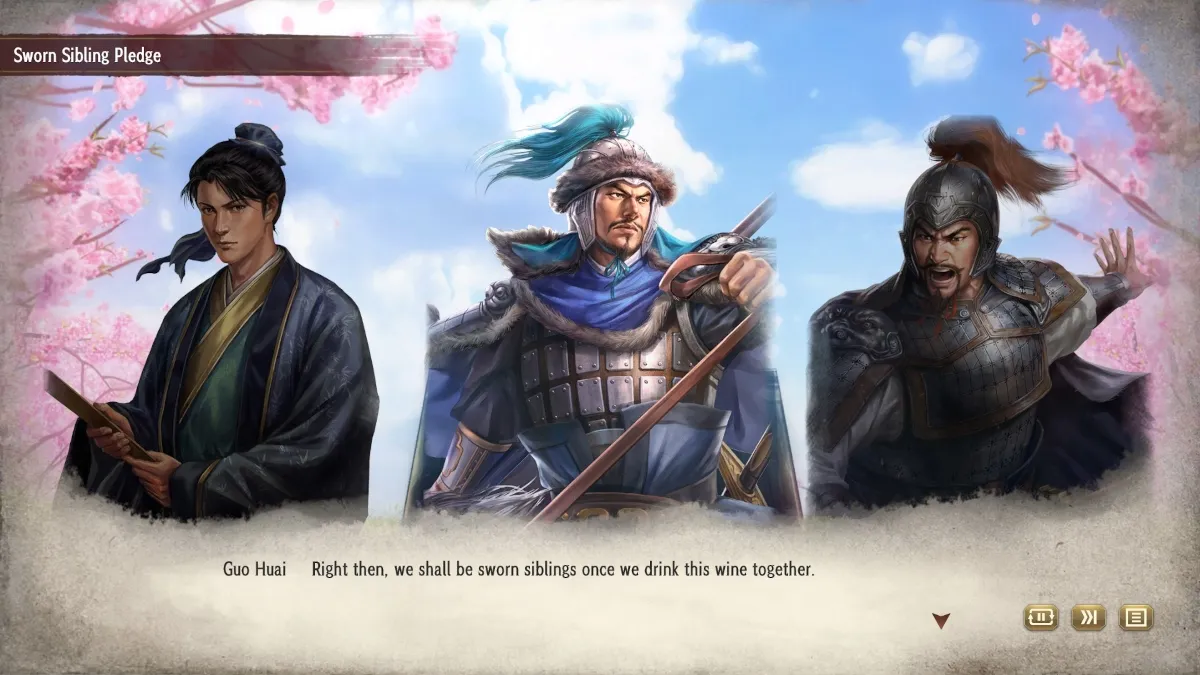
Regardless of your position or undertakings, establishing relationships with characters is crucial in Romance of the Three Kingdoms 8 Remake. Creating Synergetic destinies—through close associations like sworn siblings or marriages—enables characters to provide performance enhancements in both domestic tasks and battles. Unlike the original title, where female officers were less prevalent, this remake includes numerous female characters who aren’t defaulted to being married, facilitating the discovery of potential marriage candidates and the generation of offspring who can succeed your character. In my exploration as a subordinate, I observed my liege often relocating officers with strong connections to my city, which significantly expedited my advancement.
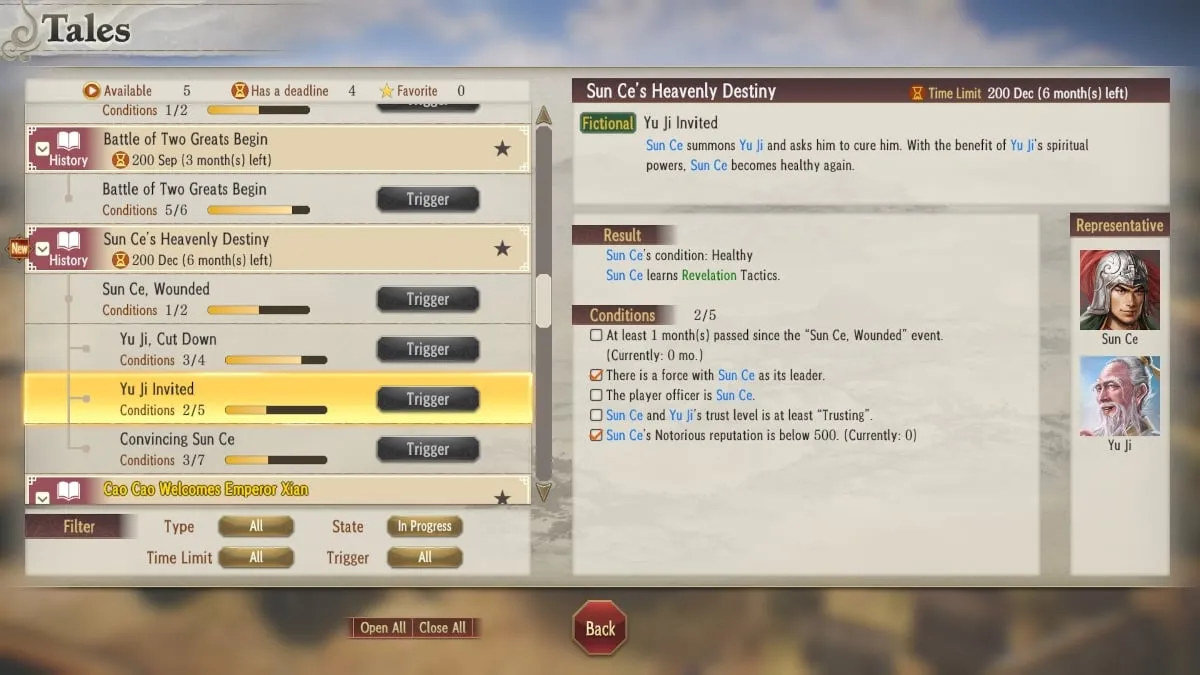
The most significant alteration in Romance of the Three Kingdoms 8 Remake is the revamped method for triggering story events. Rather than unfolding automatically in the background, the introduction of the Tales system allows players to see the exact requirements for activating events and offers the choice of whether to initiate them. These events encompass a range from historic narratives to job advancements and marrying off characters. Interestingly, some historical scenarios feature fictional ‘what-if’ elements with optimistic endings integrated as formal branches. Without a doubt, the Tales system stands out as the most impressive addition, and I’d love to see it incorporated in future installments of the series.
However, with all the trigger conditions and results publicly available, one might expect all side-events to be transparently communicated. Some requests can lead to unexpected duels; thus, while playing as a Strategist, I found myself unable to tackle a moderately strong bandit, preventing quest completion.
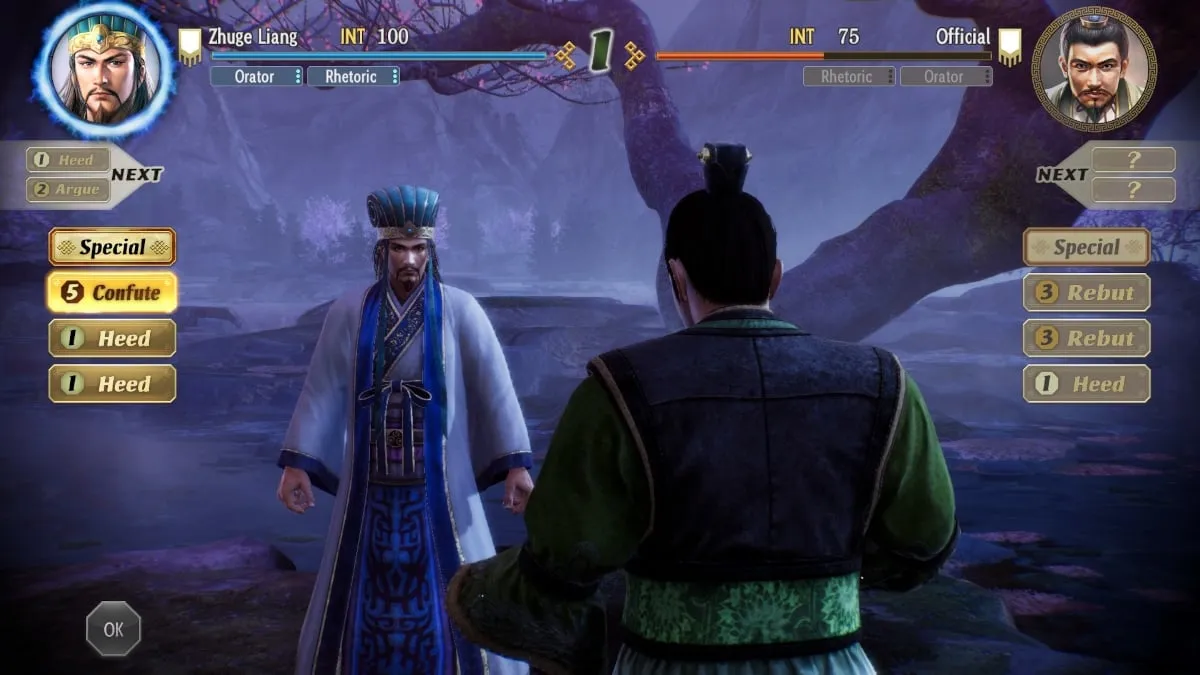
Koei Tecmo has reintroduced Debates from Romance of the Three Kingdoms 10 for Strategist-type characters to replace the Warrior-centric Duels. Interestingly, both Debate and Duel share the same mechanics; each participant plays a numbered card each turn, with the option to add more if the numbers match or are in sequential order.
The rules governing advantages might initially confuse players, but the sheer number of cards played is prioritized over the total points accumulated. Additionally, later rounds yield greater damage, encouraging players to conserve their cards to unleash a powerful final turn. Losing a Debate typically results in minor consequences, like a monetary loss or reduced reputation instead of the more severe ramifications of a non-casual Duel, which may inflict injuries or even fatality during battle.
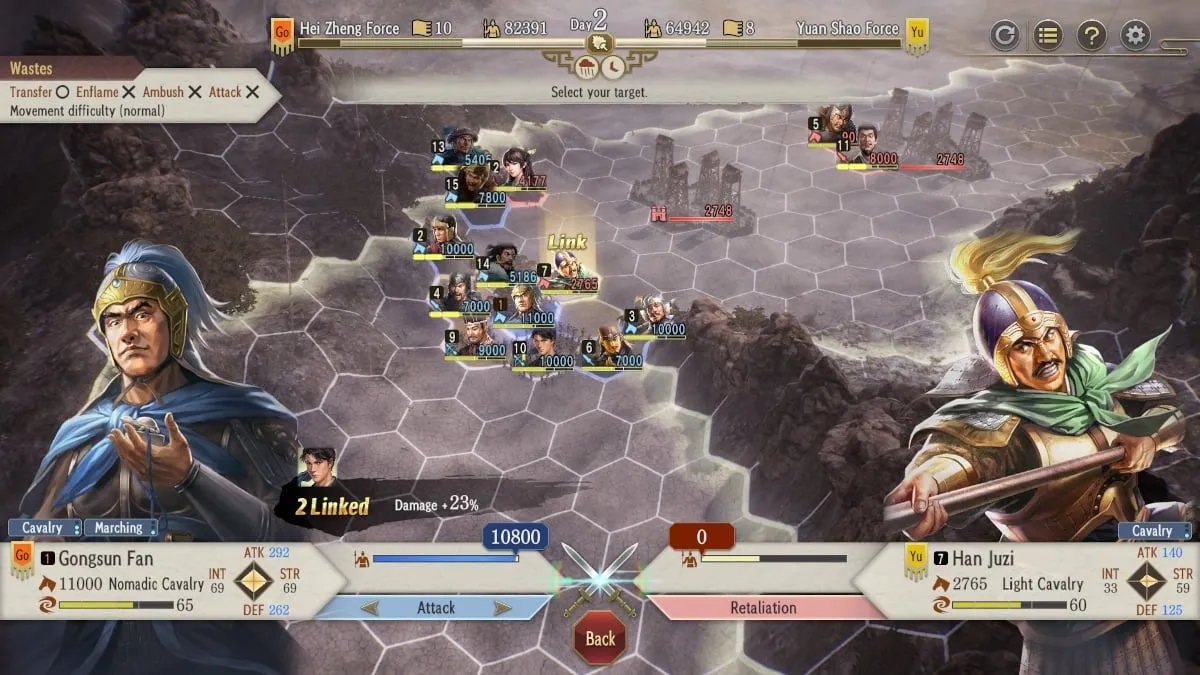
On the topic of battles, Koei Tecmo has implemented several changes to the combat system in Romance of the Three Kingdoms 8 Remake. While it retains the essence of the turn-based strategy system, the traditional square grid layout has been transformed into hexagonal tiles. Although I personally prefer square grids, the hex layout offers more flexibility, allowing players to encircle opponents more effectively.
The game features various strategies and tactics to inflict substantial damage, though most are limited to one or two uses. I discovered that bonds formed with allied officers contribute significantly to damage; these bonds produce Links that boost damage when allied officers are within range to attack. The most effective battle strategy involves coordinating a group of closely connected officers to outmaneuver and defeat enemies one at a time.
Most gameplay sections in Romance of the Three Kingdoms 8 Remake are not heavily demanding on processing power, except for the 3D-intensive battles and dueling scenarios. Still, I was able to maintain a smooth 60 fps using an RTX 3070 alongside a somewhat dated Core i9 CPU. Unfortunately, the game lacks options to increase the frame rate further. There is, however, a soundtrack setting that allows players to select between the remake’s music and the original score. I personally preferred the arrangements in the remake, which feature improved orchestration.
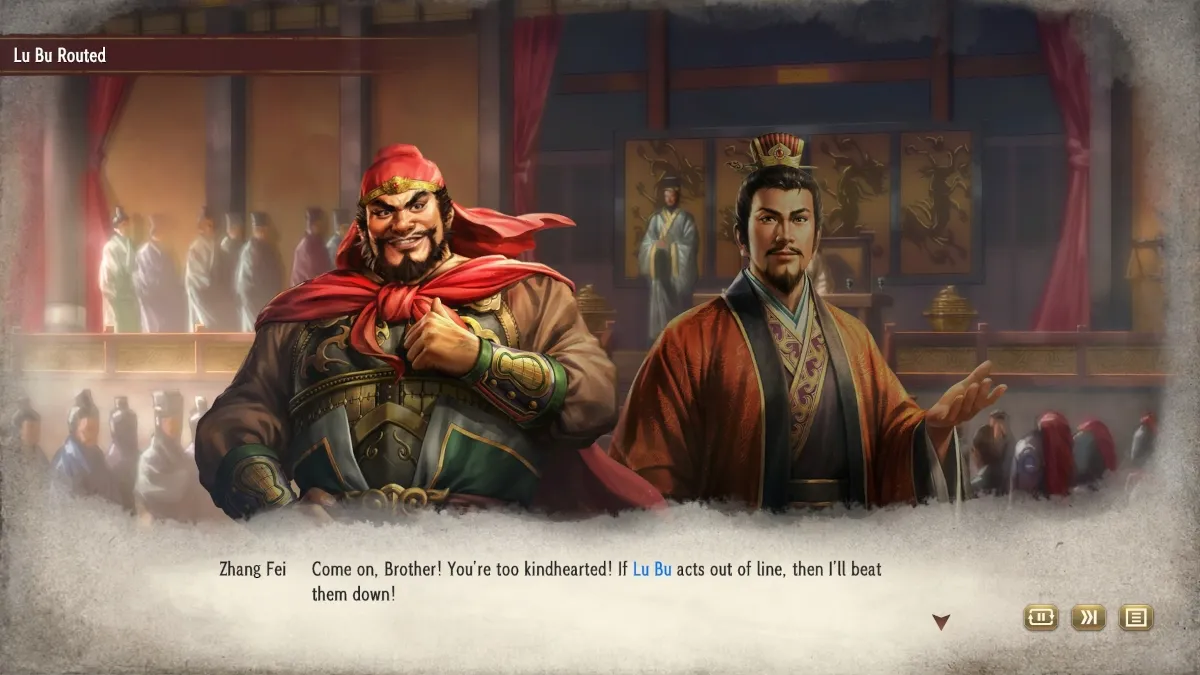
While the fundamental gameplay is mostly satisfactory, Romance of the Three Kingdoms 8 Remake suffers from significant localization issues that detract from the enjoyment of those who opt for the English version. Koei Tecmo previously incorporated Chinese voiceovers in contemporary releases like Romance of the Three Kingdoms 13 and 14. However, the Remake features only Japanese voice acting, with no additional language selections—a disappointing regression considering past offerings.
I also observed that the English localization frequently employs “they/them” pronouns to refer to individuals in various in-game dialogues. While this might make sense in standard gameplay lines—where pronouns were absent in the original Japanese—it also appears in historical event dialogues. This usage seems appropriate only if there’s a mechanism to gender-bend characters as seen in other games. However, even after unlocking the ability to edit historical characters, I found that changing their genders wasn’t possible to justify this localization decision.
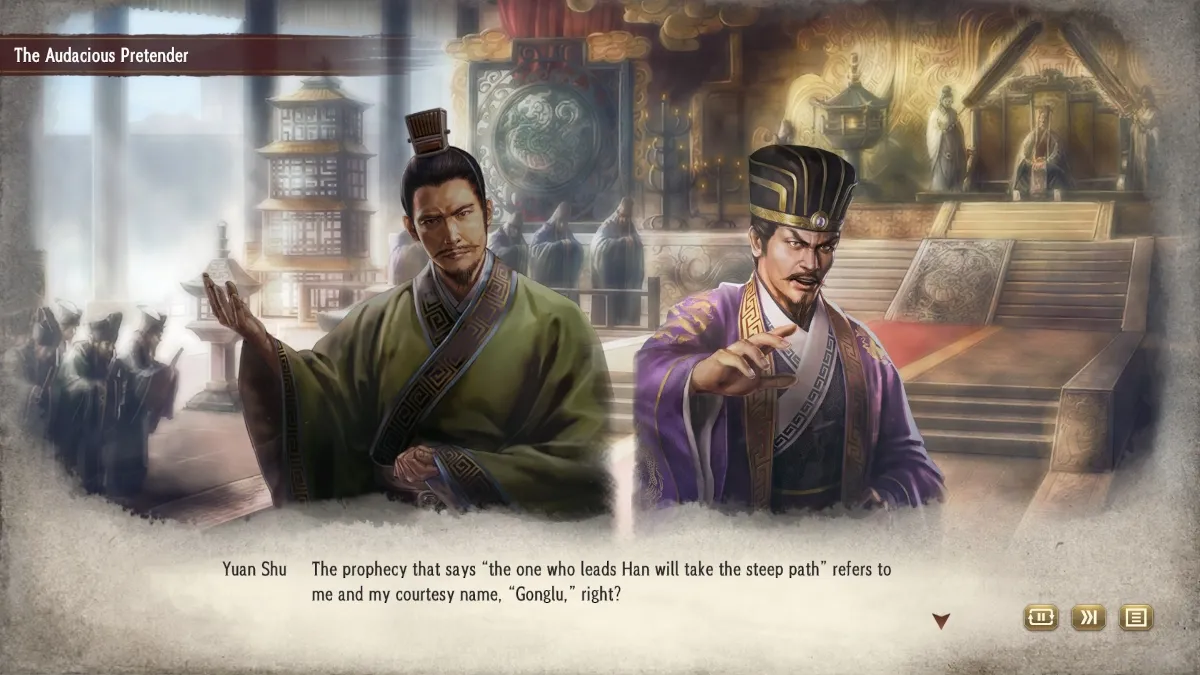
However, this is not the most troubling localization aspect of the game, or even the series at large. Even after a two-decade legacy, Koei Tecmo has yet to completely integrate courtesy names into the English versions. The company attempts to address this with some references to courtesy names for significant characters and historical narratives, yet it still fails to include the option for players to input courtesy names that characters might use instead of their given names during gameplay. This omission means players relying solely on the English version miss out on a vital layer of immersion in the game’s rich universe.
In summary, Romance of the Three Kingdoms 8 Remake succeeds in reviving a classic installment by adding contemporary elements, yet it falls short in securing its place as my top favorite among the series known for their personal viewpoint gameplay—this title has yet to surpass the fondness I hold for Romance of the Three Kingdoms 10. Although the introduction of the Tales event trigger system is a notable highlight, the various localization issues present significant hurdles that make it hard to endorse this game over its predecessors unless you’re willing to play it in Japanese.
Romance of the Three Kingdoms 8 Remake is set to launch globally for PC, PlayStation 5, PlayStation 4, and Nintendo Switch on October 24, 2024.




Leave a Reply